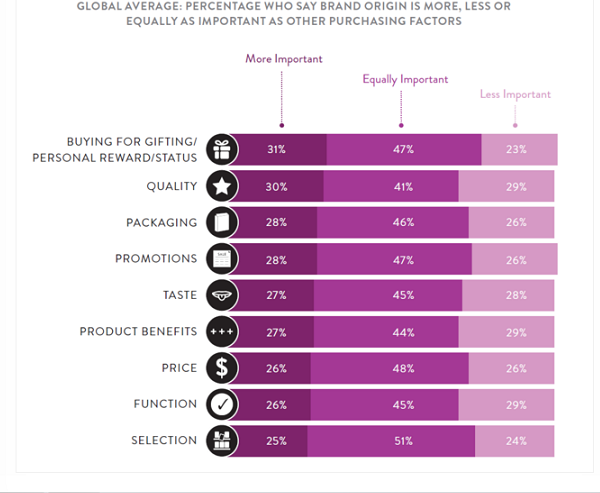 As multinational companies (MNCs) continue to expand into new markets, often providing access to a greater range of products for local consumers, are local companies getting lost in the shuffle? Not necessarily so. In fact, many local companies are thriving, despite being suddenly faced with daunting foreign rivals that have an array of advantages, including vast financial resources, diverse talent pools and sophisticated technology infrastructures, supply chains and operating practices. By leaning on their flexibility and agility, as well as their often superior grasp of the domestic operating environment, local companies are leveraging their unique advantages to resonate with consumers.
As multinational companies (MNCs) continue to expand into new markets, often providing access to a greater range of products for local consumers, are local companies getting lost in the shuffle? Not necessarily so. In fact, many local companies are thriving, despite being suddenly faced with daunting foreign rivals that have an array of advantages, including vast financial resources, diverse talent pools and sophisticated technology infrastructures, supply chains and operating practices. By leaning on their flexibility and agility, as well as their often superior grasp of the domestic operating environment, local companies are leveraging their unique advantages to resonate with consumers.
All of this cross-border expansion, however, has greatly complicated traditional definitions of country of origin. Some iconic “local” brands are actually manufactured abroad, while some foreign brands have built a manufacturing presence in local markets. And some global brands have been in a market so long that many consumers actually perceive them to be local. Nonetheless, brand origin can be an extremely valuable asset for both global and local companies.
To better understand the importance of brand-origin preferences in the path to purchase, the Nielsen Global Brand-Origin Survey polled more than 30,000 online respondents in 61 countries and examined whether consumers prefer goods produced by global/multinational brands (defined as those that operate in many markets) or by local players (those operating only in a single market—the respondent’s home country). While respondents were asked to consider these definitions in their selections, preexisting notions about brand origin could prevail—a global brand might be so pervasive in a local market that a respondent may think it is a dominant local brand. We also explored the factors driving brand preference and the role of the Internet in purchasing decisions for local and global companies. Finally, we examined what local and global players can learn from each other, so we can offer insights into how each can succeed in the changing retail landscape.

Location,Location,Location: It’s noy just Real Estate
Many consumers appear to have strong preferences about the origin of the products they buy, but how important is this attribute really when they consider a purchase? How does it stack up against other selection factors?
The short answer: It matters—a lot.
More than four in 10 global respondents (46% on average) say brand origin is as important as nine other purchasing drivers, including selection/choice, price, function and quality. And more than one-quarter (28% on average) say brand origin is more important than other selection factors.
Respondents in Asia-Pacific and Africa/Middle East are likelier to say that origin is more important than the other selection factors (33% and 32% on average, respectively). European, North American and Latin American respondents, in contrast, are likelier to say brand origin is less important than the other selection factors (35%, 32% and 31% on average, respectively).
“One of the more surprising findings from the survey is that country of origin is as important as—or even more important than—other purchasing criteria such as price and quality,” said Patrick Dodd, group president, Nielsen Growth Markets. “In a crowded retail environment, brand origin can be an important differentiator between brands, but sentiment varies by category and by country, and leveraging a powerful brand presence needs to be managed carefully regardless of whether it is global or local. Ultimately, the brands that deliver on a strong value proposition and connect personally to consumers’ needs will have the advantage in any given market.”
Other findings from the global brand-origin report include:
The top reasons for choosing a brand are the same for both global and local brands: better price/value, positive experience with the brand, safer ingredients and processing, better product benefits, and sales/promotion.
Nearly six in 10 global respondents (59%) say they buy local brands because they support local businesses, with sentiment highest in North America (65%).
When shopping online, global respondents say they’re more likely to seek out global brands for durable and electronic products and local brands for consumable products.
One-fifth of global respondents (21%) say national pride is one of the most important reasons they buy local products, with sentiment highest in Africa/Middle East (25%), Asia-Pacific (24%) and Latin America (21%).


